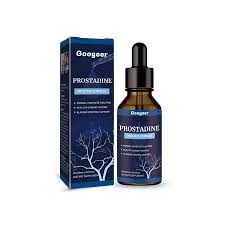Why Ignoring Prostate Symptoms Can Be Dangerous, Expert Insights

Prostate health is a topic that is increasingly gaining attention, especially as men age. Prostate problems are common, affecting millions of people worldwide, and can significantly impact the quality of life. In this post, we will explore what these problems are, how to identify the main prostate symptoms, the importance of prevention, and the latest studies on the subject. We will also discuss a natural solution called Prostadine, which has gained recognition for its benefits.
What is the Prostate ?
The prostate is a small, walnut-sized gland located below the bladder and in front of the rectum. It is an essential part of the male reproductive system, responsible for producing prostatic fluid, which is a component of semen that plays a crucial role in nourishing and transporting sperm. As men age, the prostate may undergo changes that lead to various health issues, making awareness and prevention vital.
Common Prostate Problems
Over time, it is common for the prostate to undergo changes that can result in different health problems. The most common issues include:
Benign Prostatic Hyperplasia (BPH): One of the most common issues, especially in older men, BPH is characterized by the non-cancerous enlargement of the prostate. This growth can compress the urethra, causing symptoms such as difficulty urinating, increased urinary frequency, especially at night, and the feeling that the bladder is not completely empty after urinating.
Prostatitis: This is an inflammation of the prostate that can be caused by bacterial infections or other factors such as stress or injury. Prostatitis can occur in men of all ages and may manifest through pelvic pain, difficulty urinating, and symptoms similar to those of BPH. In some cases, prostatitis can be chronic, meaning that symptoms may last for months or even years.
Prostate Cancer: This is the most serious type of prostate problem and one of the most common cancers among men. Prostate cancer typically develops slowly and may be asymptomatic in its early stages, which means many men only seek medical help when the disease is already advanced. Early detection through regular screenings is vital for effective treatment and survival.
How to Identify Prostate Symptoms?
Recognizing the main prostate symptoms is essential to seek appropriate treatment and prevent complications. Signs that require attention include:
Difficulty urinating: One of the first symptoms may be difficulty starting or maintaining the urinary stream. Many men report a weak or interrupted flow.
Increased urinary frequency: The need to urinate frequently, especially at night (nocturia), is a common symptom that can significantly disrupt sleep and quality of life.
Pain or discomfort: There may be a sensation of pain or discomfort in the pelvis, lower back, or during urination and ejaculation.
Blood in the urine or semen: Although less common, the presence of blood in the urine or semen is a red flag that requires immediate medical attention.
Incomplete bladder emptying: Many men with prostate issues feel that their bladder is not completely empty after urinating, which can lead to a constant feeling of urgency.
The Importance of Prevention: When to Start?
Prevention is key to maintaining prostate health. Experts recommend that men start regular screenings from the age of 40 to monitor prostate health, especially if there is a family history of prostate problems. Examinations such as the digital rectal exam and PSA (Prostate-Specific Antigen) test are essential for the early detection of issues. It’s important to emphasize that the earlier problems are detected, the greater the chance of effective and less invasive treatment.
Recent Studies on Prostate Health
In recent years, science has made significant strides in understanding prostate problems, bringing new perspectives on prevention and treatment. A study published in the renowned journal The Lancet Oncology, led by Dr. Freddie Hamdy from the University of Oxford, revealed that regular screening for prostate cancer can significantly reduce disease-related mortality. The research involved over 500,000 men and showed that PSA screening can reduce the risk of death from prostate cancer by up to 20%.
Additionally, another study conducted by Dr. Michael J. Barry of Massachusetts General Hospital provided important insights into the impact of lifestyle on prostate health. The research, published in the New England Journal of Medicine, highlighted that adopting a balanced diet rich in fruits, vegetables, and healthy fats, combined with regular physical activity, can significantly reduce the risk of developing prostate problems, including cancer. The study also emphasized the importance of avoiding excessive consumption of red meat and high-fat dairy products, which have been linked to an increased risk of prostate cancer.
Moreover, the study addressed the role of natural supplements and herbal remedies in supporting prostate health. Ingredients such as saw palmetto and nettle root were highlighted for their anti-inflammatory and antioxidant properties, which can help reduce the risk of BPH and prostate cancer. These findings reinforce the idea that prevention should be a multifaceted approach, involving both lifestyle changes and the use of natural supplements.
Natural Solutions: Prostadine
For those seeking a more natural approach to maintaining prostate health, Prostadine has emerged as a promising option. This supplement is formulated with natural ingredients known for their benefits to prostate health, including plant extracts like saw palmetto, pygeum africanum, and nettle root.
Benefits of Prostadine:
Reduction of Inflammation: Anti-inflammatory ingredients that help reduce prostate swelling, providing relief from symptoms associated with BPH.
Support for Urinary Function: Prostadine helps improve urinary flow and reduce the need to urinate frequently, especially at night.
Protection Against Prostate Cancer: Some components of Prostadine possess antioxidant properties that may help protect prostate cells from cancer, reducing damage caused by free radicals.
Encouragement to Get Regular Screenings Prostate health is an essential aspect of male well-being, and prevention should be a priority. Men aged 40 and over should consider regular screenings to monitor prostate health and identify any issues in their early stages. Do not ignore warning signs, and seek medical advice if you notice any symptoms. Early detection can make the difference between a simple treatment and a more complex process.
Conclusion
Prostate problems are common, but with early detection and proper prevention, it is possible to maintain health and avoid serious complications. Recent studies show that a healthy lifestyle, combined with regular checkups, is the best form of prevention. In addition, the use of natural solutions such as Prostatin can provide additional support, helping to maintain prostate health effectively and safely. Take care of your health today to ensure a healthier future.
Click here to get to know prostadine and how it can help you in this process.
